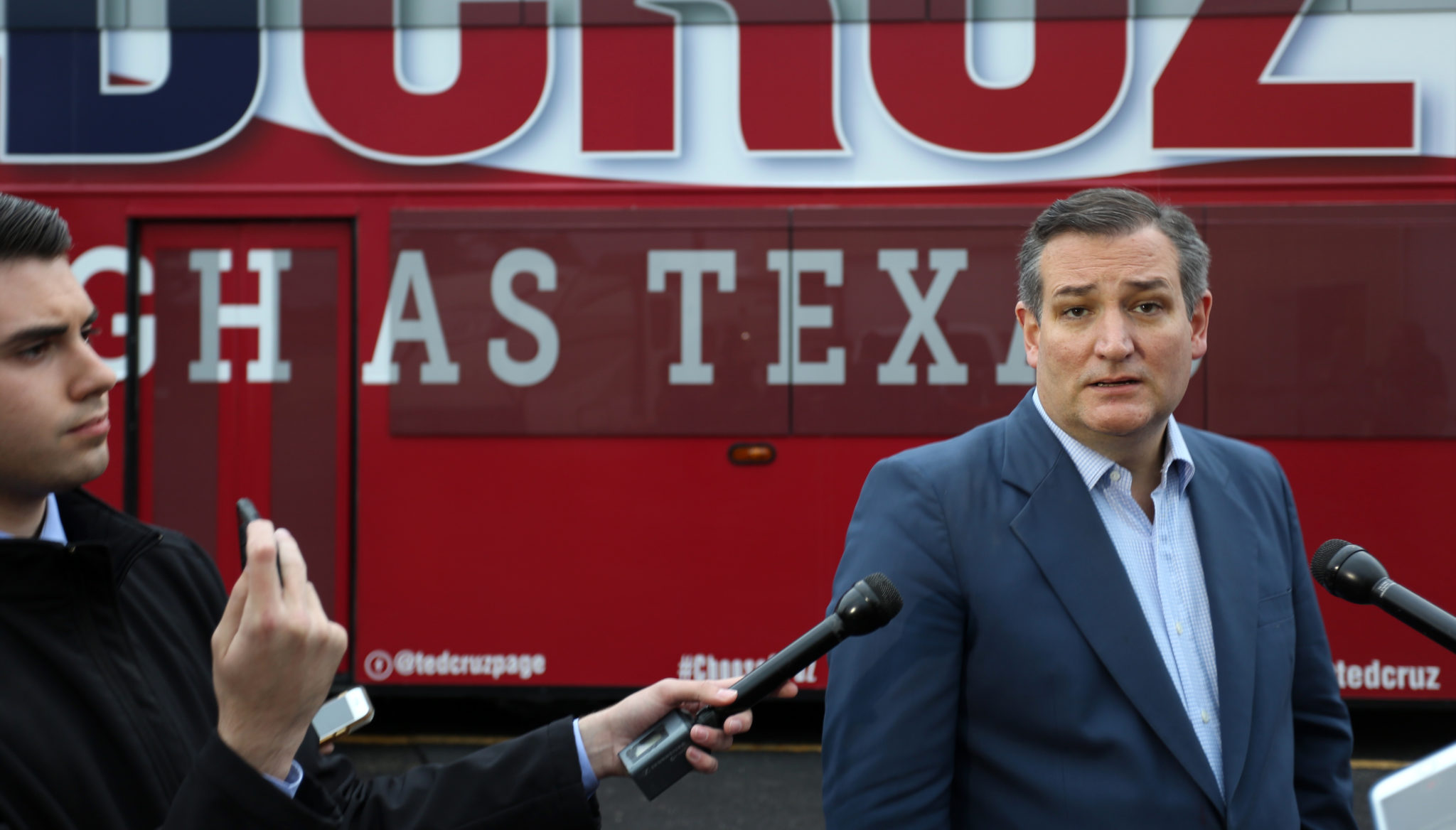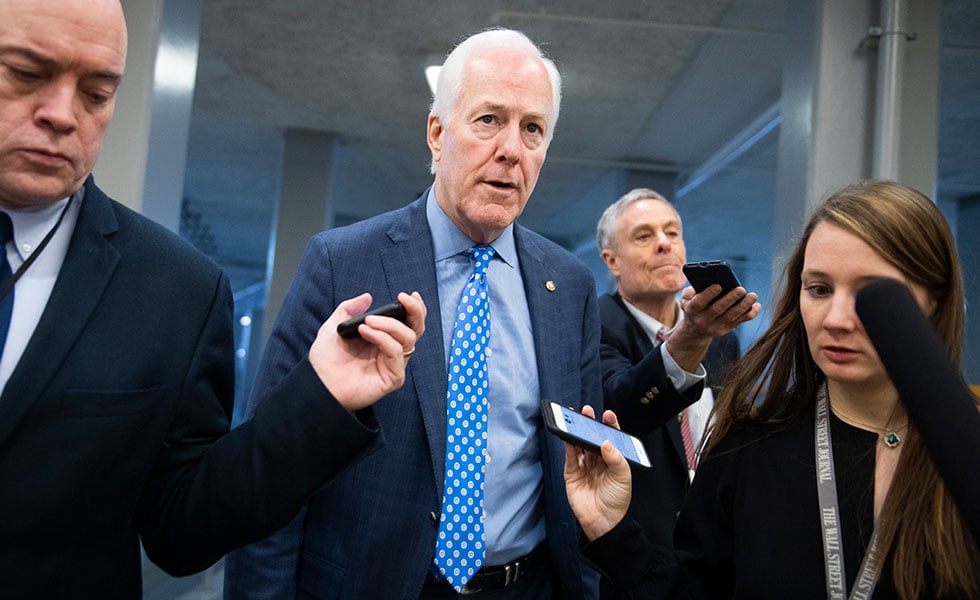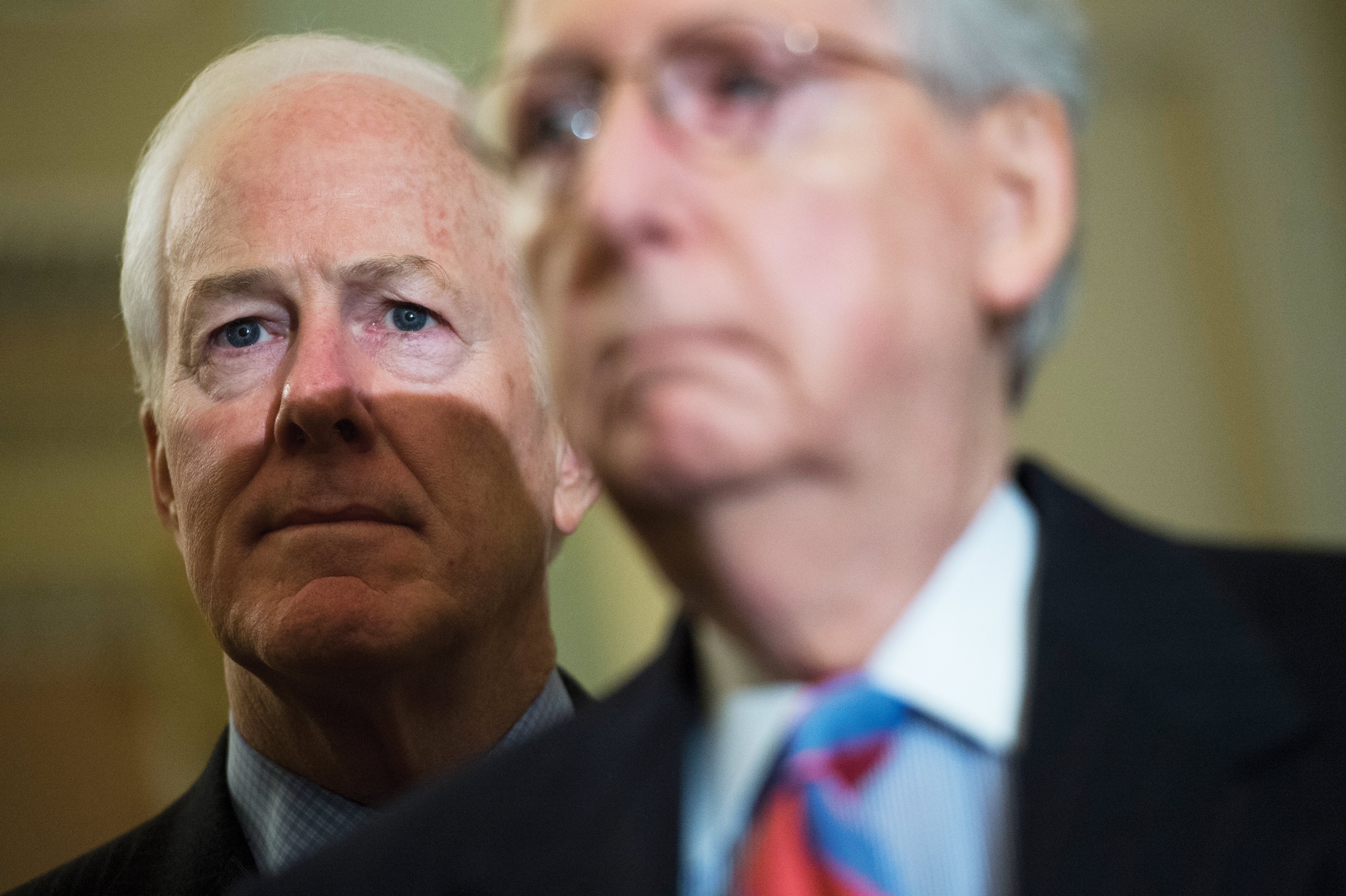
The Disconnect Between Ted Cruz’s Victory Speech and What Actually Happened in Texas
When Cruz declared victory, the crowd in Houston chanted “build the wall,” and speakers on stage greatly overstated the Republican hold on Texas.

The currency of the realm for Texas Democrats is small, symbolic victories, and the currency of the realm for Texas Republicans is the overwhelming, crushing humiliation of one’s enemies, to see them driven before you and to hear the lamentations of their women. So whatever the score Tuesday, Ted Cruz was going to declare a glorious victory. The striking thing, at his victory party at a Hilton in Houston, was the gap between what the people on stage were saying was happening and what actually seemed to be happening.
At first, the stage was empty. With O’Rourke in the lead early and the crowd just a bit uneasy, campaign manager Jeff Roe came to the stage to reassure: Things were going according to plan, and the team expected Cruz to pull into the lead as the night wore on. Eventually, he did — a massive cheer went up when Cruz brushed lightly against 50 percent, and things kept getting slowly better.
But then two networks called the race for Cruz. There was a spontaneous and sustained chant of “build the wall,” and the victory speeches began. First there was state Senator Brandon Creighton, a longtime Cruz surrogate who trekked over Iowa for him in 2016. “Who’s ready to party?” he said. “Who’s ready to send Francis O’Rourke back to El Paso?” Which was a bit of a strange thing to say, as O’Rourke was in El Paso at the moment, where he lives. In Creighton’s telling, O’Rourke had “wasted a lot of California money,” under the belief that “Texas values could be bought.” (Cruz actually raised a higher percentage of his funds from out-of-state donors than O’Rourke, though only contributions of more than $200 are required by federal law to be reported.)
Texas looks more purple than it has since at least the George W. Bush presidential administration.
Then Railroad Commissioner Ryan Sitton came out. “The question we heard” during the race, he said, “was: Is Texas a swing state?” No, the crowd very confidently shouted. Rafael Cruz, Ted’s father, took his turn. Texas had dealt a mighty rebuke to George Soros and Chuck Schumer, he said. “Texas remains solid red,” he said. “You can’t buy Texas.” The crowd started to chant: “You cannot buy Texas.”
Then Michael Berry, a Houston radio talker who dabbles freely in racist rhetoric, came out to introduce Ted. Berry, too, emphasized that foreign money and foreign values had been humiliated. “California doesn’t get to have three senators,” he said. “New York doesnt get to have three senators. CNN doesn’t get to have its own senator.”
Cruz exuded his usual smugness. The election had “rendered a verdict” on Texas, after “an assault that was unprecedented,” he said. “We saw a $100 million race with Hollywood coming in against the state, with the national media coming in against the state. But all the money in the world, was no match for the good people of Texas and their hard work.”

Cruz won, no doubt. But the results don’t look very much like the mandate Cruz and his friends were describing. Texas looks more purple than it has since at least the George W. Bush presidential administration. Cruz was never supposed to have a close race, yet it appears that he’ll win by less than 3 percentage points, which is shocking. And whether Beto’s money came from California or New York or your grandmother in Cleburne — most of his haul came from small-dollar donors anyway — it seems to have actually done quite a bit of good for races down the ballot.
Dan Patrick, Sid Miller and Ken Paxton won by an uncomfortable 5 points or less. Democrats picked up at least two congressional districts and got close in a bunch more, and made big gains in the Texas Legislature. This is the best year the party has had since 2008 and arguably since the early 1990s, and much of that is due to Cruz’s weakness.
The scary thing for Republicans, apart from the fact that Democrats turned out in strength, is that Republican-leaning voters appear to have carefully studied down-ballot races and defected to Democrats in a way they haven’t before. That’s bad news for the GOP, because once those voters get in the habit of doing so they might not stop.
In 2016, Texas Republicans helped win the White House and lost ground locally. At the Harris County GOP watch party, Dan Patrick struggled with the fact that his president had won and, as a direct result, his son lost his local judgeship in Houston’s blue sweep. In 2018, they lost more ground to Trump. Part III comes in 2020, when Texas Democrats will have the tailwind of a presidential electorate. Hype, and big talk about Democratic destruction, may not be enough, and the Republican Party of Texas can’t afford too many more victories like last night’s.



